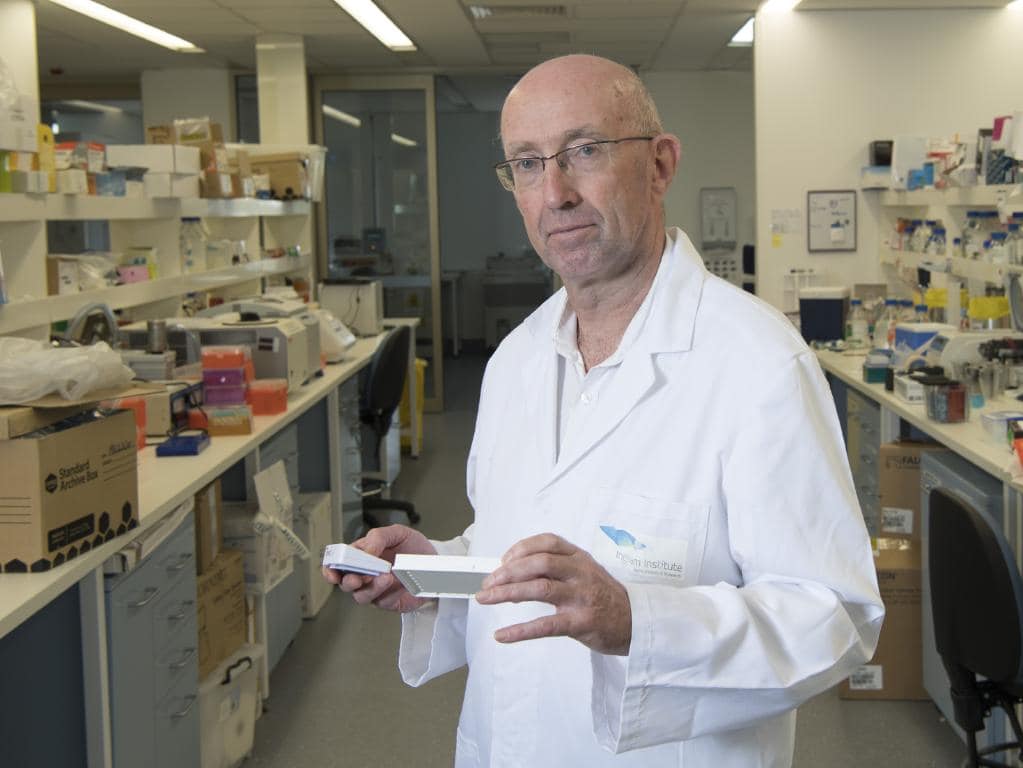
Professor’s 15 years of research to help people A WORLD-first clinical trial is about to start and if successful it could lead to advanced prostate cancer being treated with a tablet at home and without toxic side effects. Associate Professor Kieran Scott, who is based at the Ingham Institute for Applied Medical Research, has a […]
Professor’s 15 years of research to help people
A WORLD-first clinical trial is about to start and if successful it could lead to advanced prostate cancer being treated with a tablet at home and without toxic side effects.
Associate Professor Kieran Scott, who is based at the Ingham Institute for Applied Medical Research, has a deeply personal reason for his 15 years of research into prostate cancer because
both his father Kevin and uncle Paul died of the disease.
“They have given me the inspiration to keep doing the work I’m doing,’’ Assoc Prof Scott said.
“At Ingham’s we have a wall in the lab of the names of people who have died of cancer and they are very important. They inspire me every day to continue the work I am doing and to make it translate to help people.’’
Assoc Prof Scott, who also works at Western Sydney University, said if successful the clinical trial could eventually lead to advanced prostate cancer being treated by a pill at home.
“Patients won’t have to have the therapy injected and the advantage, if this works out, is that patients can take the tablets home and they don’t have to come to hospital to be treated,’’ he
said. “The tablet won’t have the toxicity of other therapies.’’
However Assoc Prof Scott was quick to point out his clinical trial, which was due to start by next week, was in the early stages and he was not sure it would work.
“That’s why it’s so exciting. It’s the first clinical trial of its kind anywhere in the world or universe,’’ he said.
Assoc Prof Scott said research projects like his were very much a hand to mouth operation, particularly in their early days, and he thanked the community and charity groups for donating to the Ingham institute to assist its clinical trials.
Following approval of the trial by Liverpool Hospital’s Human Ethics Committee, between 12 and 20 prostate cancer patients will be taking part in the trial.
The trial will examine whether a compound called C2 will be able to travel from the gut to the blood in people with prostate cancer.
Plublished in the Macarthur Chronicle, 14 Feb 2018 by Luisa Cogno

Leave a Comment